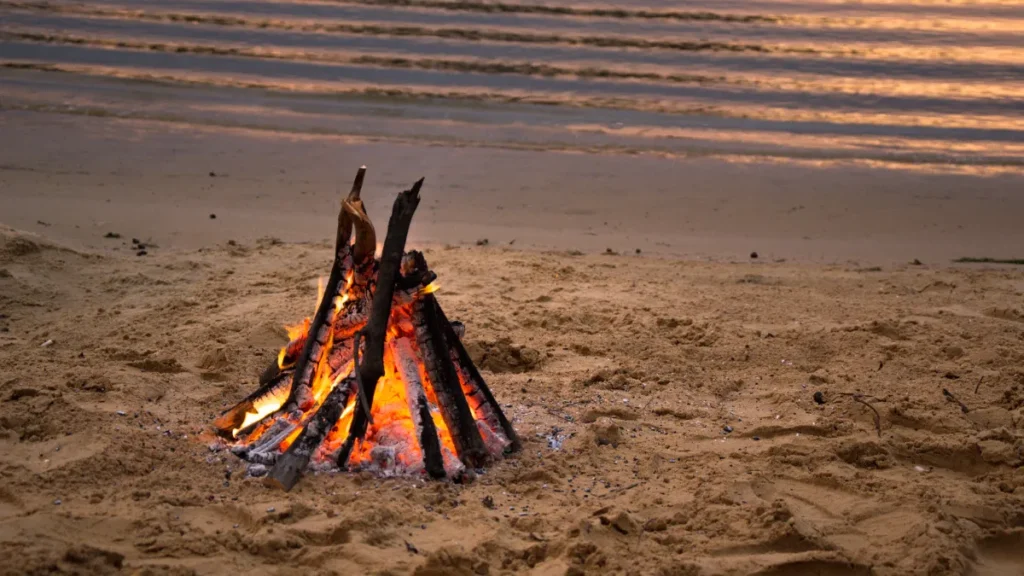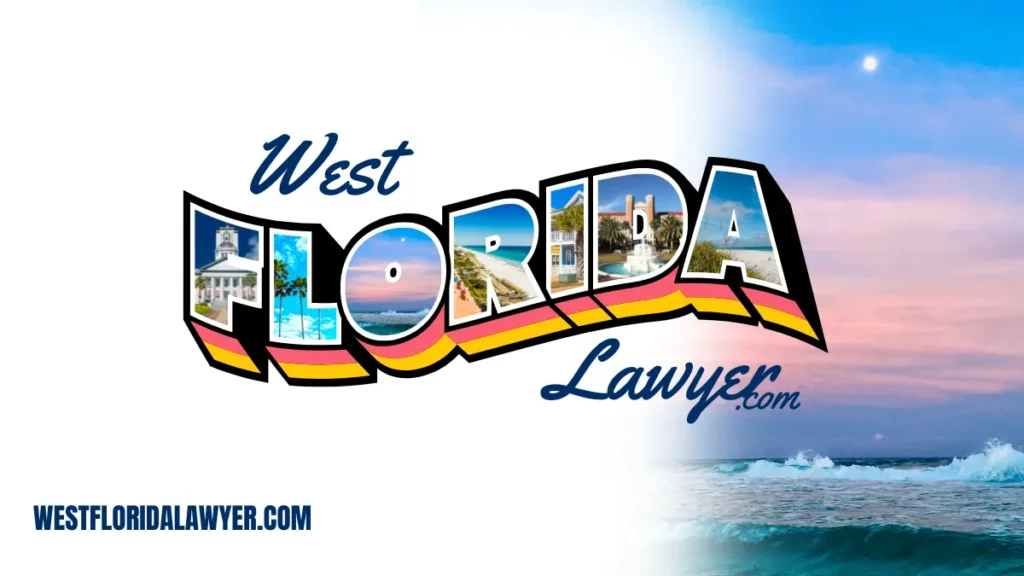Fire Laws on Florida Beaches | West Florida Lawyer
Florida’s stunning coastline attracts millions of visitors every year, many of whom enjoy bonfires and campfires along the shore. However, fire laws on Florida beaches are strictly regulated to ensure public safety, environmental protection, and the preservation of wildlife habitats. If you are planning to light a fire on a Florida beach, West Florida Lawyer wants you to understand that these laws are essential to avoid fines, legal trouble, and potential hazards.

Fire Laws on Florida Beaches
The fire laws on Florida beaches vary by county and municipality, but they all share a common goal: to protect beachgoers, wildlife, and coastal environments from the dangers of uncontrolled fires. Whether you are a resident or a visitor, it is crucial to understand the local fire regulations before igniting any flames.
Are Fires Allowed on Florida Beaches?
In general, open fires are not allowed on most Florida beaches unless explicitly permitted by local authorities. Some counties and cities have designated areas where fires are permitted, but strict guidelines must be followed. If you plan to build a fire on the beach, you should check with the local fire department or municipal office to determine if a permit is required.
Permit Requirements for Beach Fires
Many Florida beaches require a fire permit before allowing an open flame. These permits typically outline specific guidelines, including:
- The size and location of the fire
- Approved fire pits or contained fire structures
- Time restrictions for burning
- Safety measures such as fire extinguishers and water buckets
Failure to obtain a permit can result in fines, penalties, and potential legal consequences.

Restrictions on Fires to Protect the Environment
Wildlife Protection and Fire Laws
Florida is home to various protected species, including sea turtles that nest along the shores. Lighting fires on the beach can disrupt nesting sites, disorient hatchlings, and pose a serious environmental threat. Many local jurisdictions strictly prohibit fires during turtle nesting season, which runs from March through October.
Prohibited Materials for Beach Fires
Even in areas where beach fires are permitted, specific materials are prohibited due to their environmental impact and fire hazards. The following materials should never be burned on a Florida beach:
- Plastic, Styrofoam, or other synthetic materials
- Pressure-treated or painted wood
- Flammable liquids such as gasoline or kerosene
- Trash, food waste, or debris
Burning these materials can release harmful toxins, damage the beach ecosystem, and result in hefty fines.
Enforcement of Fire Laws on Florida Beaches
Local law enforcement agencies, park rangers, and fire departments are responsible for enforcing fire laws on Florida beaches. Violations can lead to significant penalties, including:
- Fines ranging from $100 to over $500
- Possible misdemeanor charges for repeat offenses
- Mandatory community service or environmental education programs
Authorities patrol beaches regularly to ensure compliance with fire regulations, and failure to follow the rules can result in immediate fines or removal from the beach.
Fire Safety Guidelines for Florida Beach Fires
If you are in an area where fires are permitted and have obtained the necessary permits, following these safety guidelines is essential:
Selecting a Safe Fire Location
- Choose an area at least 50 feet away from vegetation
- Avoid building fires near dunes, dry brush, or wildlife habitats
- Use designated fire pits or dig a shallow pit to contain the fire
Proper Fire Extinguishing Techniques
- Always have a bucket of water or sand nearby to extinguish the fire
- Douse the fire completely before leaving, ensuring there are no embers or hot coals
- Do not bury hot coals in the sand, as they can remain dangerous for hours
Respect Local Regulations and Other Beachgoers
- Follow posted signs and guidelines for fire safety
- Avoid excessive smoke that may disturb nearby visitors
- Clean up all debris and trash before leaving the area
Legal Assistance for Beach Fire Violations
If you have been cited or fined for violating fire laws on Florida beaches, you may need legal assistance to resolve the issue. At West Florida Lawyer, we specialize in beach fire law violations, helping clients understand their rights and navigate legal proceedings.
Our experienced legal team can assist with:
- Appealing fines and citations
- Defending against misdemeanor charges
- Understanding permit requirements and local ordinances
If you have been accused of violating fire laws on Florida beaches, don’t hesitate to seek professional legal advice.

Alternatives to Beach Fires
For those who enjoy the ambiance of a beach fire but want to comply with fire laws on Florida beaches, there are several alternative options:
Portable Fire Pits and Propane Fire Bowls
Many beaches that prohibit open flames still allow portable propane fire pits. These controlled devices provide warmth and atmosphere without the risk of uncontrolled fires. Always check local regulations to confirm whether they are permitted in your area.
LED Campfire Lanterns
LED lanterns and simulated fire pits provide a realistic flame-like effect without any fire hazard. They are an excellent choice for those looking to create a cozy beachside setting without violating fire laws.
Beach Bonfire Services
Several companies in Florida offer professional bonfire setups with proper permits and safety measures in place. These services handle everything from setup to cleanup, ensuring a hassle-free and legal beach fire experience.
Contact West Florida Lawyer Today
If you are facing legal issues related to fire laws on Florida beaches, contact West Florida Lawyer for expert guidance. We offer a free case evaluation form to help you assess your situation and determine the best course of action.
Sources
- Florida Department of Environmental Protection – Provides information on coastal regulations and environmental protection laws. Visit Website
- Local County Fire Departments – Details on county-specific fire permit requirements and enforcement policies. Visit Websites
- Florida Fish and Wildlife Conservation Commission – Guidelines on wildlife protection and restrictions on beach fires. Visit Website


